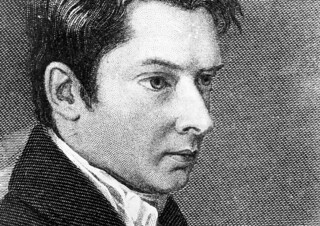William Hazlitt
Melvyn Bragg and guests discuss the life and works of William
Hazlitt. Hazlitt is best known for his essays, which ranged in subject
matter from Shakespeare, through his first meeting with Samuel Taylor
Coleridge, to a boxing match. What is less well-known, however, is that
he began his writing life as a philosopher, before deliberately
abandoning the field for journalism. Nonetheless, his early reasoning
about the power of the imagination to take human beings beyond narrow
self-interest, as encapsulated in his 'Essay on the Principles of Human
Action', shines through his more popular work. Hazlitt is a figure full
of contradictions - a republican who revered Napoleon, and a radical who
admired the conservative philosopher Edmund Burke. His reputation
suffered terribly from his book 'Liber Amoris', a self-revealing memoir
of his infatuation with his landlady's daughter. But in the Victorian
and Edwardian eras, his importance was acknowledged by writers like
Charles Dickens, Robert Louis Stevenson and Ford Madox Ford. In the 180
years since his death, his stature as perhaps the finest essayist in the
language has grown and grown. With:Jonathan BateProfessor of English
Literature at the University of Warwick Anthony GraylingProfessor of
Philosophy at Birkbeck College, University of LondonUttara
NatarajanSenior Lecturer in the Department of English and Comparative
Literature at Goldsmiths College, University of London. Producer: Phil
Tinline.



No hay comentarios:
Publicar un comentario
Se aceptan opiniones alternativas, e incluso coincidentes: